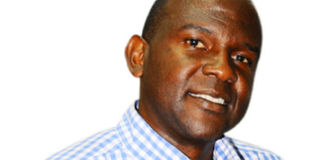In Uganda, falling sick is very risky business

We started the long weekend on a very sad note. Our friends Joy and Kezekia Bwire suddenly lost their son, Matthew Ayebare. Matthew was born almost a decade ago with a defect on his brain.
Operations in Kampala, trips to India, the several doctors and loads of expensive medicine were part of his short life.
Multiple seizures left the young soul with injuries and the parents, tense with anxiety and apprehension.
But Matthew together with his parents, siblings, friends, teachers at Safari Kindergarten and the Christian community at All Saints Cathedral Kampala, soldiered on with prayer, love, and counselling.
Last Saturday morning the young man got seizures like never before. They lasted longer than usual and he finally, breathed his last. He is now in peaceful repose with his ancestors in Rwerere, 7km from Rukungiri Town.
When we look back at the life of this young soul you can’t help but wonder what would have been if he was born in a different setting.
Matthew was lucky, his parents and relatives could afford expensive medicine (as I write there is a consignment on its way from India for Matthew!) They dedicated resources for his maintenance, medical checkups, foreign travel, etc.
Just imagine if it was a child born to a barefooted shamba boy in Mutukula who lives from hand to mouth? The colossal sums of money involved would consign the child to an early grave.
But even in settings where people are well off, treating some of the complicated conditions like cancers means that people must move around with a begging bowl to mobilise resources.
Yet it is not the main part of the healthcare crisis that we face.
Take for instance Mulago our main referral hospital. It has so many well-trained, good, dedicated doctors and health workers. Many of them are consulted by neighbouring countries and those far and beyond.
But the facilities in which they operate means we do not get their full potential. A doctor, however good will never get to their best if they do not have good laboratories and other diagnostic resources to help them give an accurate prognosis of a patient’s predicament.
It even gets worse if they do not have a reliable supply of efficacious drugs to treat the patients. So we end up with a situation where good doctors fail to handle many of these complicated cases and even some simple ones.
They depend on tests carried out by commercially oriented and motivated laboratories plus diagnostic centres around town.
The drugs that they recommend are bought from pharmacies mainly in the Wandegeya area. Wandegeya has become an ‘annex’ of Mulago National Referral Hospital. Many times the drugs are purchased by a relative who may not have any medical knowledge.
One doctor told me of a case in which a semi-illiterate relative acting as a care giver bought the wrong medicine and administered it to the patient nearly leading to death.
Kezekia told me that medicines for his son on the market were not effective at all, so he had to import them very expensively.
In other instances because of shortage and poor motivation of healthcare workers like nurses, it has become the norm for one to go to hospital with a relative to look after them.
This one may come with an infection or leave with one which is not good for the community. Yet traditionally care giving is the work of a nurse who knows what to do when and how in a bid to cure the patient.
Again a doctor told me that in some cases these care givers interfere with the treatment. There was a case in which a father attempted to adjust the flow of an intravenous fluid bottle simply because he thought it was ‘too slow!’
The last time I had a patient at Mulago, the place was teeming with all sorts of people from those preaching the gospel, hawking cooked food, to those selling herbs -whose efficacy is not documented- to supplement the treatment patients were receiving.
One tried to sell me a concoction called ‘supercharger’ which he initially told me was an aphrodisiac.
When he failed to make the sale he claimed it ‘immunises’ the prostate gland from cancer! Imagine how many desperate patients consume such and what it may fatally do to their treatment -which will be blamed on doctors.
Of course such an environment is not serene enough to ensure the quick recovery of patients. It also does not give the health worker space to do a good job with a proper mind frame.
At the end of the day, doctors have to refer patients to India. India, like Kenya and South Africa has now become Uganda’s ‘referral hospital.’ It does not come cheap though. That is why it is very risky business falling sick in Uganda today.
It partly explains the rise of several miracle providing churches, witchdoctors and herbalists peddling concoctions.
There is a ready market of people who are scared of falling sick because that may mean death.
May Matthew Ayebare’s soul rest in eternal peace.
Nicholas Sengoba is a commentator on political and social issues. [email protected] Twitter: @nsengoba




